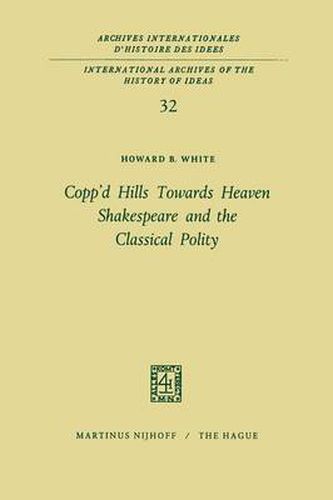Readings Newsletter
Become a Readings Member to make your shopping experience even easier.
Sign in or sign up for free!
You’re not far away from qualifying for FREE standard shipping within Australia
You’ve qualified for FREE standard shipping within Australia
The cart is loading…






This title is printed to order. This book may have been self-published. If so, we cannot guarantee the quality of the content. In the main most books will have gone through the editing process however some may not. We therefore suggest that you be aware of this before ordering this book. If in doubt check either the author or publisher’s details as we are unable to accept any returns unless they are faulty. Please contact us if you have any questions.
The departmentalism of American universities has doubtless much to recommend it. It indicates that exuberance is not a sufficient sub stitute for scholarship, that, for better or for worse, every scholar today must be something of a specialist. But when any great writer and great thinker reaches out and grasps the whole of human life, the study of his work transcends specialization. And while exuberance may not replace scholarship, it may accompany it. Most of my work has been done in the history of political philosophy. I have dared to overstep departmental boundaries, because I believe that Shakespeare has something to say to political philosophy. I am not the first to express this view. Whether I express it well or badly, I shall not be the last. I want to thank Leo Strauss, my teacher. He has read the manus cript and given me the benefit of his insight and judgment. I want to thank Richard Kennington, who has taken so much time from his own work to comment meticulously and constructively on this work as on other things I have written. His help has been generous, and my appreciation is deep. I must, in particular, thank my colleague, Adolph Lowe. He has perused this study, much of it in several versions. Through long walks in Manchester, Vermont, we have discussed my work and his comments. Usually his comments have been compelling. I can regret only that I am completely unqualified to reciprocate.
$9.00 standard shipping within Australia
FREE standard shipping within Australia for orders over $100.00
Express & International shipping calculated at checkout
Stock availability can be subject to change without notice. We recommend calling the shop or contacting our online team to check availability of low stock items. Please see our Shopping Online page for more details.
This title is printed to order. This book may have been self-published. If so, we cannot guarantee the quality of the content. In the main most books will have gone through the editing process however some may not. We therefore suggest that you be aware of this before ordering this book. If in doubt check either the author or publisher’s details as we are unable to accept any returns unless they are faulty. Please contact us if you have any questions.
The departmentalism of American universities has doubtless much to recommend it. It indicates that exuberance is not a sufficient sub stitute for scholarship, that, for better or for worse, every scholar today must be something of a specialist. But when any great writer and great thinker reaches out and grasps the whole of human life, the study of his work transcends specialization. And while exuberance may not replace scholarship, it may accompany it. Most of my work has been done in the history of political philosophy. I have dared to overstep departmental boundaries, because I believe that Shakespeare has something to say to political philosophy. I am not the first to express this view. Whether I express it well or badly, I shall not be the last. I want to thank Leo Strauss, my teacher. He has read the manus cript and given me the benefit of his insight and judgment. I want to thank Richard Kennington, who has taken so much time from his own work to comment meticulously and constructively on this work as on other things I have written. His help has been generous, and my appreciation is deep. I must, in particular, thank my colleague, Adolph Lowe. He has perused this study, much of it in several versions. Through long walks in Manchester, Vermont, we have discussed my work and his comments. Usually his comments have been compelling. I can regret only that I am completely unqualified to reciprocate.